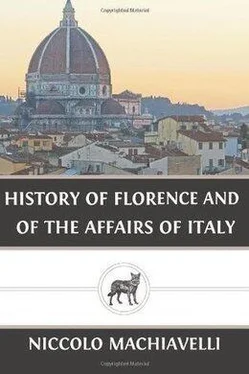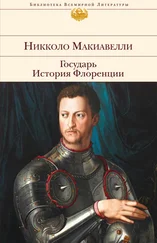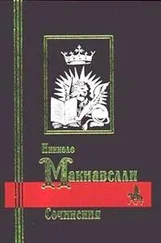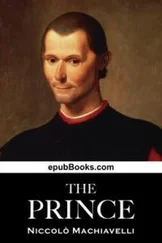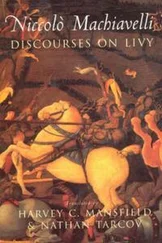Disunion having arisen among the descendants of Charlemagne, occasion was given to another northern people, called Normans, to assail France and occupy that portion of the country which is now named Normandy. A part of these people came into Italy at the time when the province was infested with the Berengarii, the Saracans, and the Huns, and occupied some places in Romagna, where, during the wars of that period, they conducted themselves valiantly. Tancred, one of these Norman princes, had many children; among the rest were William, surnamed Ferabac, and Robert, called Guiscard. When the principality was governed by William, the troubles of Italy were in some measure abated; but the Saracens still held Sicily, and plundered the coasts of Italy daily. On this account William arranged with the princes of Capua and Salerno, and with Melorco, a Greek, who governed Puglia and Calabria for the Greek emperor, to attack Sicily; and it was agreed that, if they were victorious, each should have a fourth part of the booty and the territory. They were fortunate in their enterprise, expelled the Saracens, and took possession of the island; but, after the victory, Melorco secretly caused forces to be brought from Greece, seized Sicily in the name of the emperor, and appropriated the booty to himself and his followers. William was much dissatisfied with this, but reserved the exhibition of his displeasure for a suitable opportunity, and left Sicily with the princes of Salerno and Capua. But when they had parted from him to return to their homes, instead of proceeding to Romagna he led his people towards Puglia, and took Melfi; and from thence, in a short time, recovered from the Greek emperor almost the whole of Puglia and Calabria, over which provinces, in the time of pope Nicholas II. his brother Robert Guiscard was sovereign. Robert having had many disputes with his nephews for the inheritance of these states, requested the influence of the pope to settle them; which his holiness was very willing to afford, being anxious to make a friend of Robert, to defend himself against the emperor of Germany and the insolence of the Roman people, which indeed shortly followed, when, at the instance of Gregory, he drove Henry from Rome, and subdued the people. Robert was succeeded by his sons Roger and William, to whose dominion not only was Naples added, but all the places interjacent as far as Rome, and afterward Sicily, of which Roger became sovereign; but, upon William going to Constantinople, to marry the daughter of the emperor, his dominions were wrested from him by his brother Roger. Inflated with so great an acquisition, Roger first took the title of king of Italy, but afterward contented himself with that of king of Puglia and Sicily. He was the first who established and gave that name to this kingdom, which still retains its ancient boundaries, although its sovereigns have been of many families and countries. Upon the failure of the Normans, it came to the Germans, after these to the French, then to the Aragonese, and it is now held by the Flemish.
About this time Urban II. became pope and excited the hatred of the Romans. As he did not think himself safe even in Italy, on account of the disunion which prevailed, he directed his thoughts to a generous enterprise. With his whole clergy he went into France, and at Anvers, having drawn together a vast multitude of people, delivered an oration against the infidels, which so excited the minds of his audience, that they determined to undertake the conquest of Asia from the Saracens; which enterprise, with all those of a similar nature, were afterward called crusades, because the people who joined in them bore upon their armor and apparel the figure of a cross. The leaders were Godfrey, Eustace, and Baldwin of Bouillon, counts of Boulogne, and Peter, a hermit celebrated for his prudence and sagacity. Many kings and people joined them, and contributed money; and many private persons fought under them at their own expense; so great was the influence of religion in those days upon the minds of men, excited by the example of those who were its principal ministers. The proudest successes attended the beginning of this enterprise; for the whole of Asia Minor, Syria, and part of Egypt, fell under the power of the Christians. To commemorate these events the order of the Knights of Jerusalem was created, which still continues, and holds the island of Rhodes—the only obstacle to the power of the Mohammedans. The same events gave rise to the order of the Knights Templars, which, after a short time, on account of their shameless practices, was dissolved. Various fortunes attended the crusaders in the course of their enterprises, and many nations and individuals became celebrated accordingly. The kings of France and England joined them, and, with the Venetians, Pisans, and Genoese, acquired great reputation, till the time of Saladin, when, by whose talents, and the disagreement of the Christians among themselves, the crusaders were robbed of all that glory which they had at first acquired; and, after ninety years, were driven from those places which they had so honorably and happily recovered.
After the death of Urban, Pascal II. became pope, and the empire was under the dominion of Henry IV. who came to Rome pretending friendship for the pontiff but afterward put his holiness and all his clergy in prison; nor did he release them till it was conceded that he should dispose of the churches of Germany according to his own pleasure. About this time, the Countess Matilda died, and made the church heir to all her territories. After the deaths of Pascal and Henry IV. many popes and emperors followed, till the papacy was occupied by Alexander III. and the empire by Frederick, surnamed Barbarossa. The popes during this period had met with many difficulties from the people of Rome and the emperors; and in the time of Barbarossa they were much increased. Frederick possessed military talent, but was so full of pride that he would not submit to the pontiff. However, at his election to the empire he came to Rome to be crowned, and returned peaceably to Germany, where he did not long remain in the same mind, but came again into Italy to subdue certain places in Lombardy, which did not obey him. It happened at this time that the cardinal St. Clement, of a Roman family, separated from Alexander, and was made pope by some of the cardinals. The Emperor Frederick, being encamped at Cerma, Alexander complained to him of the anti–pope, and received for answer, that they were both to go to him, and, having heard each side, he would determine which was the true pope. This reply displeased Alexander; and, as he saw the emperor was inclined to favor the anti–pope, he excommunicated him, and then fled to Philip, king of France. Frederick, in the meantime, carrying on the war in Lombardy, destroyed Milan; which caused the union of Verona, Padua, and Vicenza against him for their common defense. About the same period the anti–pope died, and Frederick set up Guido of Cremona, in his stead.
The Romans, from the absence of the pope, and from the emperor being in Lombardy, had reacquired some authority in Rome, and proceeded to recover the obedience of those places which had been subject to them. And as the people of Tusculum refused to submit to their authority, they proceeded against them with their whole force; but these, being assisted by Frederick, routed the Roman army with such dreadful slaughter, that Rome was never after either so populous or so rich. Alexander now returned to the city, thinking he could be safe there on account of the enmity subsisting between the Romans and the emperor, and from the enemies which the latter had in Lombardy. But Frederick, setting aside every other consideration, led his forces and encamped before Rome; and Alexander fled to William, king of Puglia, who had become hair of that kingdom after the death of Roger. Frederick, however, withdrew from Rome on account of the plague which then prevailed, and returned to Germany. The cities of Lombardy in league against him, in order to command Pavia and Tortona, which adhered to the imperial party, built a city, to be their magazine in time of war, and named in Alexandria, in honor of the pope and in contempt of Frederick.
Читать дальше
